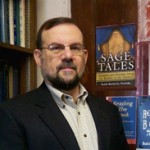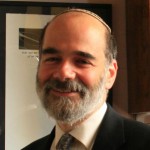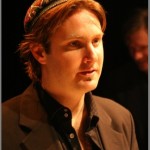On Rosh Hashanah and Yom Kippur mornings, just prior to Musaf (the “additional” liturgical offerings for the Days of Awe), the prayer leader steps forth from the community to begin this special service. It is a moment of great drama, hearkening back to the days of the ancient Temple in Jerusalem when the High Priest would enter the inner sanctum of the Temple — the “Holy of Holies” — and beseech God on behalf of the community of Israel. To be a “shaliach tzibur,” a prayer leader, literally means to stand in the breach as a “messenger of the community.”
In the synagogue of my childhood, as the leader rose from his seat and slowly walked to the lectern to begin Musaf, a hush fell over the congregation. To help deal with — and underscore — the intensity of the moment, a special meditation is recited; it is one of the most honest and raw prayers I know. It begins:
Hineni, he-ani mi-ma’as … (Here I am, a person of impoverished acts …)
In reflecting on the words of this prayer, I have come to view it as much more than a preamble for the Musaf service on the High Holy Days. It can actually be read as a leadership coda for anyone who dares to act on behalf of others.
For me, the hardest word to utter in this prayer is the very first one: Hineni (Here I am). Am I worthy enough to say it? Am I really here, present and ready to serve? Abraham responded with this compact expression when God asked him to take up the hardest of tasks, including the binding of Isaac (Genesis 22). Moses had a “Hineni moment” at the Burning Bush, when the Lord called him to liberate the Israelites from slavery in Egypt (Exodus 3). Knowing the textual resonances present in this simple but weighty word, can I say, “Here I am?”
The ability to answer this great call requires the cultivation of at least three different personal qualities addressed in the “Hineni.” The first is an awareness of one’s own abilities. There are times when we are called to serve, when our skills or insight are urgently needed. At such times, we must own our strengths and step up to the plate — “Here I stand, ready to lead.” To shrink from this challenge would be to deny others the opportunity for growth or healing because of our lack of awareness or fear.
Of course, there is a fine line between confidence and arrogance. It is crucial that as we step forth to lead, we also remain aware of our limitations. This is why after stating, “Here I am,” the prayer leader immediately continues with the words “a person of impoverished acts.” Who among us could not do more or better for other people, for the Earth or for God? It is no wonder that Moses — the great model of Jewish leadership — is also described in the Torah as “the most humble of all people” (Numbers 12:3).
But our awareness of our inadequacies cannot lead to paralysis. As the prayer continues, “Please do not allow my own sins and shortcomings to bear on my actions on their behalf.” While it is impossible to fully prevent our personal flaws from impacting our work with others, we must be self-reflective and actively work to improve them.
The third element that I want to highlight from the “Hineni” is the texts’ statement about the need for support from others. We must find allies, partners and mentors to help us grow and thrive as leaders. Recognizing this fact, the anonymous author of our prayer turns to the angels for assistance. Some of us shift uncomfortably in our seats when our liturgies speak of angels. But let us not be too narrow in our interpretation of who angels are and how they might function in our lives. During this period of intense soul-searching and repentance, we can use all of the help we can get, whether it comes from heaven or earth! Being a shaliach tzibur never means going it alone, but rather joining with our community in prayer or action, leading and listening as the experience unfolds.
May we all be blessed this year to step up and lead with confidence and humility, working with others to meet the challenges and opportunities on the horizon. Hineni!
Rabbi Mishael Zion is the co-Director of the Bronfman Youth Fellowships, a diverse community of 1,000 outstanding young Jews from Israel and North America who contribute their talents to the Jewish community and the world at large. Mishael was ordained by Yeshivat Chovevei Torah, and has taught at the Hartman Institute and the Skirball Center. Mishael is the author of the celebrated “A Night to Remember: The Haggadah of Contemporary Voices” and the Israeli bestseller, Halaila HaZeh: Haggadah Yisraelit. Mishael spends his time between Jerusalem and New York and blogs at Text and the City.
ON Scripture — The Torah is a weekly Jewish scriptural commentary, produced in collaboration with Odyssey Networks and Hebrew College. Thought leaders from the United States and beyond offer their insights into the weekly Torah portion and contemporary social, political, and spiritual life.
















